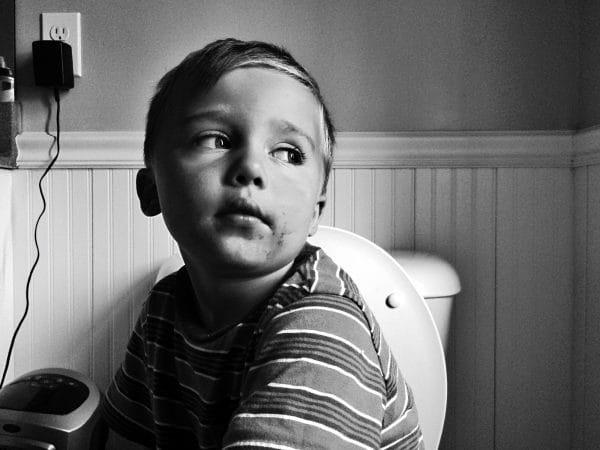Gentle Parenting Techniques: Learn How to Be a Gentle Parent
Gentle parenting is a compassionate and empathetic approach to raising children that focuses on understanding and respect. Instead of traditional authoritarian methods, gentle parenting techniques emphasize positive discipline, effective communication, and fostering a secure emotional connection between parents and their children.
This article explores various gentle parenting strategies that can benefit both children and adults, including techniques for better sleep, calming down, and tips for beginners.

Understanding Gentle Parenting
![]()
At its core, gentle parenting seeks to understand the reasons behind a child’s behavior rather than simply reacting to it. This method encourages parents to consider a child’s developmental stage and to use empathetic communication to guide behavior. Gentle parenting is not about letting children do whatever they want; rather, it’s about setting limits with kindness and consistency.
Gentle Parenting Techniques for Adults
![]()
Gentle parenting is not only applicable to children; adults can also benefit from these techniques in their interactions with each other. Here’s how adults can implement gentle parenting strategies in their daily lives:
- Active Listening: Practice active listening by giving your full attention, making eye contact, and reflecting back what you’ve heard to ensure understanding.
- Nonviolent Communication: Use “I” statements to express your feelings and needs without blaming or criticizing the other person.
- Conflict Resolution: Approach conflicts with the intention to understand the other person’s perspective and find a mutually satisfactory solution.
- Self-Regulation: Recognize and manage your own emotions before responding to others, especially in stressful situations.
Gentle Parenting Sleep Techniques
![]()
Getting a child to sleep can be one of the most challenging aspects of parenting. Gentle parenting sleep techniques can make bedtime a more peaceful experience for everyone involved. Here are some methods that can help:
- Consistent Bedtime Routine: Establish a predictable bedtime routine that includes calming activities like reading or soft music.
- Comforting Presence: Stay with your child as they fall asleep, offering reassurance and comfort as needed.
- Gradual Adjustments: If changes are needed in the sleep routine, make them gradually to avoid causing stress or anxiety.
- Understanding Sleep Patterns: Be aware of age-appropriate sleep needs and patterns, and adjust expectations accordingly.
Gentle Parenting Techniques to Calm Down
![]()
Children can experience intense emotions that they don’t yet know how to manage. Gentle parenting techniques to calm down focus on helping children navigate their feelings without escalating the situation. Here are some calming strategies:
- Deep Breathing: Teach your child to take deep breaths to help them relax and regain control of their emotions.
- Time-In: Instead of a time-out, have a time-in where you sit with your child and discuss their feelings and behaviors in a non-threatening way.
- Emotion Coaching: Help your child label their emotions and understand what they’re feeling and why.
- Distraction: Redirect your child’s attention to a different, more calming activity when they’re upset.
Gentle Parenting for Beginners
![]()
If you’re new to gentle parenting, it might feel overwhelming to change your approach. Here are some foundational steps for beginners to start incorporating gentle parenting techniques:
- Educate Yourself: Read books, attend workshops, or join parenting groups to learn more about gentle parenting philosophies and methods.
- Start Small: Choose one area to focus on, such as improving communication or implementing a bedtime routine, and build from there.
- Practice Patience: Change takes time. Be patient with yourself and your child as you both learn and grow.
- Seek Support: Find a community or network of like-minded parents who can offer advice and encouragement.
Putting Gentle Parenting into Practice
![]()
Implementing gentle parenting techniques requires consistency and dedication. Here are some practical steps to integrate these strategies into daily life:
- Model Behavior: Children learn by example, so model the behavior you want to see in them. Show empathy, patience, and self-control in your actions.
- Positive Discipline: Focus on teaching and guiding rather than punishing. Use natural consequences and problem-solving to help children learn from their mistakes.
- Open Communication: Encourage open dialogue about feelings and behaviors. Make it safe for your child to express themselves without fear of judgment or retribution.
- Mindfulness: Be present and engaged with your child, showing them that they are valued and important.
Case Study: Gentle Parenting in Action
![]()
Consider the case of Sarah, a mother of two young children, who decided to shift to gentle parenting after experiencing frustration with traditional disciplinary methods. Sarah started by setting a consistent bedtime routine for her kids, incorporating gentle parenting sleep techniques such as reading and cuddles. She noticed a significant improvement in her children’s ability to fall asleep and their overall mood in the mornings.
When conflicts arose, Sarah used gentle parenting techniques to calm down, like taking deep breaths with her children and discussing their feelings. Over time, her children began to use these strategies on their own, demonstrating improved emotional regulation.
By consistently applying gentle parenting methods, Sarah’s relationship with her children grew stronger, and the atmosphere in her home became more peaceful and respectful.
Conclusion: Embracing Gentle Parenting
![]()
Gentle parenting is a journey that transforms the parent-child relationship into one of mutual respect and understanding. By incorporating gentle parenting techniques for adults, sleep, calming down, and starting as beginners, parents can create a nurturing environment that promotes healthy emotional development.
While the transition to gentle parenting may require effort and patience, the benefits of a more connected and harmonious family life are well worth it. Embrace gentle parenting as a way to guide your children while respecting their individuality and fostering a deep, lasting bond.





